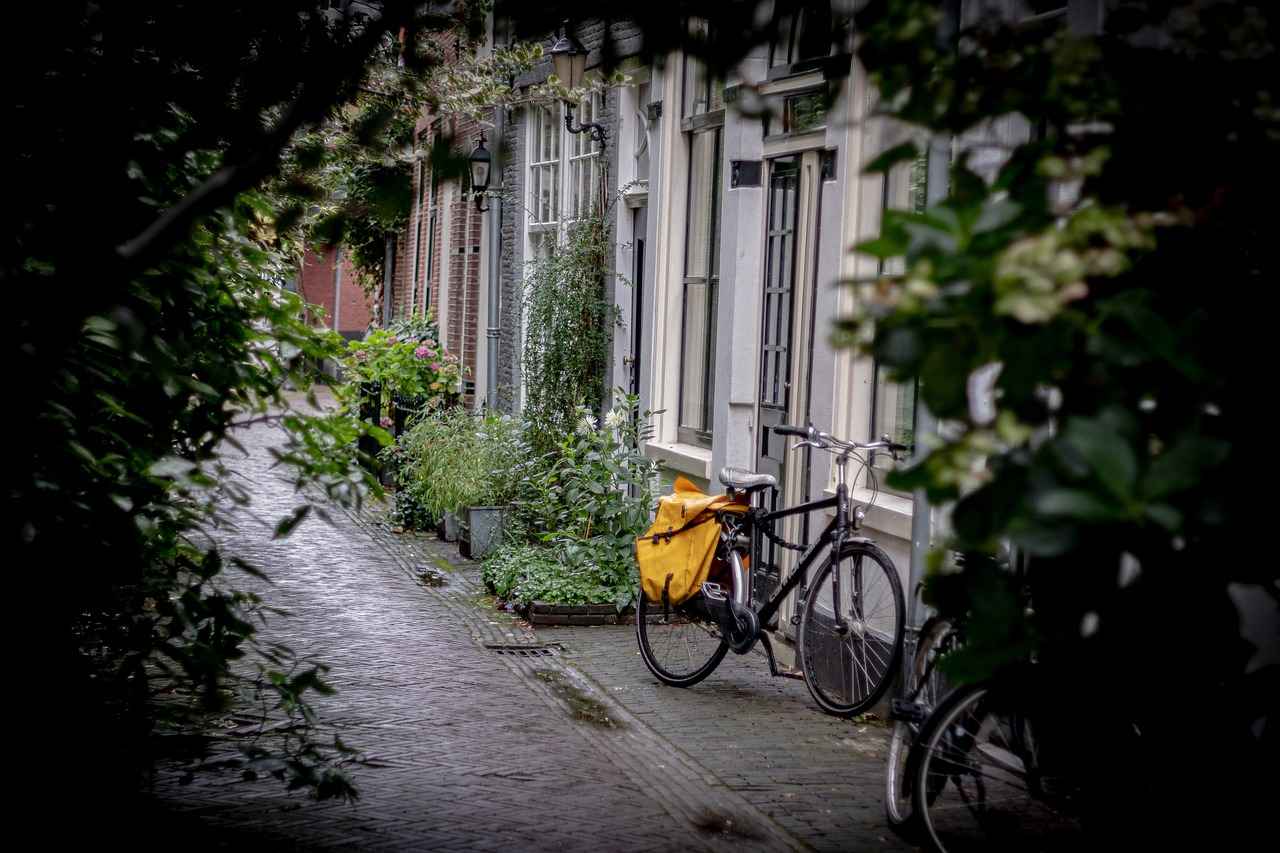This article delves into the emergence of electric dirt bikes, examining their influence on extreme sports and the potential developments in this exciting mode of transportation.
What Are Electric Dirt Bikes?
Electric dirt bikes are specialized off-road motorcycles that utilize electric motors for propulsion. They present a quieter, more environmentally friendly alternative to traditional gas-powered models, making them increasingly attractive to a new generation of riders.
Benefits of Electric Dirt Bikes
- Lower Maintenance Costs: Electric motors require less maintenance than gas engines, leading to cost savings over time.
- Reduced Noise Pollution: These bikes operate quietly, allowing riders to enjoy nature without disturbing wildlife or other outdoor enthusiasts.
- Accessibility: Electric dirt bikes can be ridden in areas where noise restrictions are in place, expanding the range of available trails.
Environmental Impact
By producing zero emissions, electric dirt bikes play a crucial role in promoting sustainable riding practices. This eco-friendly approach is particularly appealing to environmentally conscious riders looking to minimize their carbon footprint.
Battery Technology Advancements
Recent innovations in battery technology have significantly improved the performance and range of electric dirt bikes. Riders can now enjoy longer rides with fewer interruptions for recharging, enhancing the overall experience.
Charging Infrastructure
The expansion of charging stations specifically designed for electric dirt bikes is essential for their growth. This infrastructure development will facilitate easier access to charging, encouraging more riders to make the switch.
Performance Comparison with Gas Bikes
When evaluating electric dirt bikes against their gas-powered counterparts, factors such as torque, speed, and handling reveal distinct advantages and disadvantages inherent to each type.
Popular Electric Dirt Bike Models
Several electric dirt bike models have gained traction, showcasing diverse features that cater to various riding styles. Notable brands include:
- Zero Motorcycles
- KTM
- Alta Motors
Price Range and Affordability
Electric dirt bikes are available in a wide price range, making them accessible to a broader audience while still delivering high-quality performance and features.
Challenges Facing Electric Dirt Bikes
Despite their numerous benefits, electric dirt bikes face challenges, including limited range, higher initial costs, and the necessity for a robust charging network.
Range Anxiety Issues
Many potential buyers experience range anxiety, fearing they might run out of battery during lengthy rides in remote locations.
Market Competition with Gas Bikes
Electric dirt bikes must contend with established gas-powered models, which have a loyal customer base and a well-developed aftermarket support system.
The Future of Electric Dirt Bikes
The outlook for electric dirt bikes is optimistic, with ongoing technological innovations and increasing acceptance among extreme sports enthusiasts paving the way for broader adoption. As manufacturers continue to enhance performance and reduce costs, these bikes are poised to become a significant player in the extreme sports arena.

What Are Electric Dirt Bikes?
Electric dirt bikes represent a significant shift in the world of off-road motorcycling. These innovative machines are powered entirely by electric motors, making them a quieter and more sustainable option compared to traditional gas-powered dirt bikes. As the demand for environmentally friendly transportation solutions grows, electric dirt bikes are emerging as a popular choice among both recreational riders and competitive athletes.
Unlike their gas counterparts, electric dirt bikes utilize advanced battery technology, offering riders impressive torque and acceleration. This means that riders can experience thrilling performance without the noise and emissions typically associated with traditional motorcycles. The electric motor’s instant torque delivery allows for smooth and responsive handling, making these bikes suitable for various terrains.
One of the most appealing aspects of electric dirt bikes is their environmental impact. By reducing harmful emissions, these bikes contribute to cleaner air and a healthier planet. Furthermore, they can be ridden in areas with strict noise regulations, allowing enthusiasts to enjoy their sport without disturbing wildlife or local communities.
As battery technology continues to advance, the range and performance of electric dirt bikes are expected to improve significantly. Many models now offer extended riding times and faster charging capabilities, addressing concerns about range anxiety that potential buyers may have. In addition, the growing network of charging stations is making it easier for riders to find power sources during their adventures.
In conclusion, electric dirt bikes are not only a viable alternative to gas-powered motorcycles but also represent a forward-thinking approach to extreme sports. With their numerous benefits, including reduced maintenance costs, environmental sustainability, and impressive performance, electric dirt bikes are poised to play a crucial role in the future of off-road riding.

Benefits of Electric Dirt Bikes
Electric dirt bikes are revolutionizing the off-road riding experience with a range of benefits that cater to both riders and the environment. Here are some of the most significant advantages:
- Lower Maintenance Costs: Unlike traditional gas-powered dirt bikes, electric models have fewer moving parts, leading to reduced wear and tear. This translates to lower maintenance expenses over time, making them a more economical choice for riders.
- Reduced Noise Pollution: Electric dirt bikes operate quietly, which is a significant advantage in areas with noise restrictions. This feature allows riders to enjoy their sport without disturbing nature or local communities, promoting a more peaceful riding experience.
- Ability to Ride in Noise-Restricted Areas: Many urban and suburban areas have implemented noise regulations that limit the use of gas-powered vehicles. Electric dirt bikes can be used in these zones, providing riders with more access to trails and parks that were previously off-limits.
- Environmental Benefits: By producing zero emissions, electric dirt bikes contribute to a cleaner environment. They help reduce air pollution and promote sustainable riding practices, making them an ideal choice for eco-conscious riders.
- Instant Torque and Performance: Electric motors deliver power instantly, providing impressive torque and acceleration. This characteristic enhances the overall performance of electric dirt bikes, allowing for better handling on various terrains.
- Innovative Technology: Electric dirt bikes are often equipped with advanced technology features such as regenerative braking, which helps recharge the battery during rides. This innovation not only extends the bike’s range but also enhances the overall riding experience.
In conclusion, the benefits of electric dirt bikes extend beyond just performance; they encompass economic, environmental, and social advantages. As technology advances and more riders embrace this innovative mode of transport, electric dirt bikes are poised to become a staple in the realm of extreme sports.
Environmental Impact
Electric dirt bikes are revolutionizing the off-road riding experience, not only by enhancing performance but also by significantly reducing environmental impact. As the world becomes increasingly aware of the need for sustainable practices, these bikes stand out as a viable solution for eco-conscious riders.
One of the most significant benefits of electric dirt bikes is their ability to reduce greenhouse gas emissions. Traditional gas-powered bikes emit harmful pollutants that contribute to air quality degradation and climate change. In contrast, electric dirt bikes operate on clean energy, producing zero tailpipe emissions. This transition to electric power is critical in the fight against global warming and promotes a healthier environment.
Furthermore, electric dirt bikes are quieter than their gas counterparts. This noise reduction allows riders to enjoy the natural surroundings without disturbing wildlife or nearby communities. Many natural parks and trails are implementing restrictions on gas-powered vehicles due to noise pollution, making electric bikes a more accessible option for those who wish to ride in these areas.
Another aspect of their environmental impact is the promotion of sustainable riding practices. Electric dirt bikes often encourage riders to be more mindful of their surroundings, as they can traverse sensitive terrains without causing significant damage. This aspect is particularly important for preserving ecosystems and ensuring that trails remain open for future generations.
In summary, the environmental benefits of electric dirt bikes are clear. By reducing emissions, lowering noise pollution, and promoting sustainable practices, these bikes are not just a trend but a step toward a more eco-friendly future in extreme sports. As technology continues to advance, we can expect even greater strides in making off-road riding more sustainable.
Battery Technology Advancements
have revolutionized the landscape of electric dirt bikes, significantly enhancing their usability and appeal. With the ongoing improvements in battery design and chemistry, riders can now experience extended ranges and superior performance, making electric dirt bikes a viable alternative to traditional gas-powered models.
Modern electric dirt bikes are equipped with advanced lithium-ion batteries that provide higher energy density and faster charging capabilities. This means that riders can enjoy longer rides without the constant worry of needing to recharge. Recent innovations have led to batteries that not only hold more charge but also have a longer lifespan, reducing the frequency of replacements and maintenance.
- Increased Range: Many of the latest electric dirt bikes can travel over 100 miles on a single charge, depending on riding conditions and style. This is a significant improvement compared to earlier models.
- Faster Charging: Some new models feature fast-charging technology, allowing riders to recharge their batteries to 80% in under an hour, making it convenient for quick pit stops during long rides.
- Weight Reduction: Advances in battery technology have also led to lighter batteries, contributing to overall bike performance and handling. A lighter bike is easier to maneuver, especially in challenging terrains.
Furthermore, the integration of smart technology in battery management systems allows riders to monitor battery health and performance in real-time. This feature not only enhances safety but also optimizes riding strategies, ensuring that riders can maximize their experience.
As manufacturers continue to invest in research and development, the future of electric dirt bikes looks bright. With ongoing advancements in battery technology, we can expect even more remarkable improvements, paving the way for a new era of extreme sports.
Charging Infrastructure
plays a pivotal role in the adoption and practicality of electric dirt bikes. As more riders embrace this eco-friendly alternative to traditional gas-powered bikes, the need for accessible and efficient charging solutions becomes increasingly important.
The development of dedicated charging stations for electric dirt bikes is essential for their widespread acceptance. Riders often seek the freedom to explore off-road trails without the anxiety of running out of battery power. By establishing a network of charging stations in popular riding areas, manufacturers and local governments can significantly enhance the riding experience.
Moreover, these charging stations should be strategically located at trailheads, parks, and recreational areas to ensure that riders can easily recharge their bikes while taking a break or enjoying the scenery. This convenience encourages longer rides and greater exploration, ultimately promoting the sport of electric dirt biking.
- Accessibility: Charging stations should be easily accessible to all riders, regardless of their experience level.
- Fast Charging: Implementing fast-charging technology can minimize downtime, allowing riders to quickly recharge and continue their adventures.
- Integration with Apps: Developing mobile applications that show the locations of charging stations can help riders plan their routes more effectively.
Additionally, partnerships between electric dirt bike manufacturers and local businesses can lead to innovative charging solutions. For instance, cafes or shops near popular trails could provide charging ports, creating a win-win situation for both riders and local economies.
In conclusion, the establishment of a comprehensive is vital for the future of electric dirt biking. By making charging stations widely available and user-friendly, we can support the growth of this exciting sport and ensure that riders can enjoy their journeys without the worry of battery depletion.
Performance Comparison with Gas Bikes
When it comes to off-road performance, the debate between electric dirt bikes and their gas-powered counterparts is both intense and fascinating. Each type of bike brings its own set of advantages and disadvantages, particularly in terms of torque, speed, and handling.
Torque and Acceleration
Electric dirt bikes are known for their instant torque delivery. This means that riders can experience rapid acceleration right from a standstill, which is particularly beneficial in technical terrains. In contrast, gas-powered bikes often require a build-up of RPMs to achieve maximum torque, which can affect their responsiveness in challenging conditions.
Speed Capabilities
In terms of top speed, gas bikes traditionally have the upper hand. Many gas-powered models can reach higher speeds due to their powerful engines. However, advancements in electric bike technology are closing this gap, with some high-performance electric models now capable of competing closely with gas bikes at higher speeds.
Handling and Weight Distribution
Handling is another critical aspect where electric and gas bikes differ. Electric dirt bikes tend to have a lower center of gravity due to the placement of their batteries, which can enhance stability and maneuverability. Gas bikes, on the other hand, may offer more rugged suspension systems that can handle rougher terrains but can feel bulkier and less agile.
Maintenance and Longevity
From a maintenance perspective, electric dirt bikes often require less upkeep than gas-powered bikes. They have fewer moving parts, which translates to lower long-term costs. Conversely, gas bikes may require regular oil changes, air filter replacements, and more frequent repairs due to their mechanical complexity.
Conclusion
In summary, the performance comparison between electric dirt bikes and gas-powered bikes reveals a dynamic landscape. While gas bikes have long been the standard in extreme sports, electric bikes are rapidly evolving, offering unique advantages that cater to a new generation of riders. As technology continues to advance, the lines between these two types of bikes will likely blur, leading to exciting developments in the world of off-road riding.

Popular Electric Dirt Bike Models
As the demand for electric dirt bikes continues to grow, several models have emerged that stand out in terms of performance, features, and design. These bikes cater to a wide range of riders, from beginners to seasoned professionals, each offering unique capabilities that enhance the riding experience.
- Zero FX: Known for its lightweight design and impressive torque, the Zero FX is perfect for trail riding and off-road adventures. Its silent operation allows riders to enjoy nature without disturbing the environment.
- Alta Motors Redshift: This model is designed for serious riders, boasting high performance with a powerful electric motor that delivers exceptional speed and handling. The Redshift is particularly popular in motocross circles.
- KTM Freeride E-XC: Combining the ruggedness of traditional dirt bikes with electric technology, the KTM Freeride E-XC is ideal for steep trails and challenging terrains. It features a robust frame and advanced battery management system.
- Sur-Ron Light Bee: A favorite among adventure seekers, the Sur-Ron Light Bee offers a blend of performance and versatility. Its off-road capabilities make it suitable for various terrains, and its lightweight design enhances maneuverability.
- BMW CE 04: While primarily known for its urban mobility, the BMW CE 04 is also capable of light off-road riding. Its sleek design and advanced tech features make it an attractive option for city riders looking for an electric alternative.
Each of these models showcases the potential of electric dirt bikes, offering riders the chance to experience thrilling rides with reduced environmental impact. As technology advances, we can expect even more exciting developments in this sector.
In conclusion, the electric dirt bike market is rapidly evolving, with various models available to suit different riding styles and preferences. Whether you’re looking for speed, agility, or ruggedness, there’s an electric dirt bike out there that can meet your needs.
Top Brands in the Market
Top Brands in the Electric Dirt Bike Market
The electric dirt bike market is rapidly evolving, with several prominent brands leading the charge in innovation and performance. Among these, Zero Motorcycles, KTM, and Alta Motors stand out for their commitment to quality and cutting-edge technology.
- Zero Motorcycles: Known for their high-performance electric motorcycles, Zero offers a range of dirt bikes equipped with advanced battery technology and impressive torque. Their models are designed for both casual riders and serious enthusiasts, making them a versatile choice in the market.
- KTM: A well-established name in the motorcycle industry, KTM has embraced electric technology with its innovative electric dirt bike lineup. Their bikes are renowned for their lightweight design and superior handling, catering to riders looking for an exhilarating off-road experience.
- Alta Motors: Although a newer player in the market, Alta Motors has made a significant impact with their electric dirt bikes that emphasize performance and durability. Their bikes are built for tough terrains and are favored by riders who value both speed and reliability.
These brands not only offer unique designs and specifications but also contribute to the growing acceptance of electric dirt bikes in the extreme sports community. As technology advances, these manufacturers are continually improving their products, ensuring that riders have access to the best possible performance and features.
In conclusion, the electric dirt bike market is set to expand even further, with leading brands like Zero Motorcycles, KTM, and Alta Motors paving the way for a new generation of eco-friendly and high-performance off-road vehicles. As more riders embrace this innovative technology, we can expect to see exciting developments in the years to come.
Price Range and Affordability
When considering the purchase of an electric dirt bike, one of the most significant factors is the price range. Electric dirt bikes are available at various price points, making them an attractive option for a wide audience, from casual riders to serious enthusiasts. This accessibility is crucial in promoting the adoption of electric motorcycles in the extreme sports community.
The price of electric dirt bikes can vary significantly based on several factors, including brand, features, and performance capabilities. Below is a general breakdown of the price ranges you can expect:
| Price Range | Typical Features | Target Audience |
|---|---|---|
| Under $3,000 | Basic performance, lower speed, shorter range | Entry-level riders, casual users |
| $3,000 – $6,000 | Improved performance, decent range, moderate features | Intermediate riders, hobbyists |
| Above $6,000 | High-end performance, advanced technology, longer range | Professional riders, serious enthusiasts |
In addition to the initial purchase price, it is essential to consider the overall cost of ownership. Electric dirt bikes typically have lower maintenance costs compared to their gas-powered counterparts. This is due to fewer moving parts and the absence of oil changes, which can lead to significant savings over time.
Moreover, many electric dirt bike models come equipped with features that enhance the riding experience, such as regenerative braking and customizable power settings. These features can justify the higher price for those seeking performance and versatility.
As the technology behind electric dirt bikes continues to evolve, we can expect to see even more affordable options entering the market, making this exciting mode of transportation accessible to a broader audience. The future of electric dirt bikes is bright, and their affordability will play a crucial role in their popularity.

Challenges Facing Electric Dirt Bikes
While electric dirt bikes have revolutionized off-road riding with their environmentally friendly features and advanced technology, they also encounter significant challenges that could hinder their widespread adoption. Understanding these hurdles is essential for potential buyers and enthusiasts.
- Limited Range: One of the most pressing issues is the limited range of electric dirt bikes compared to their gas-powered counterparts. Many electric models can only travel a certain distance on a single charge, which can lead to concerns about running out of power during rides, especially in remote areas.
- Higher Initial Costs: The upfront cost of electric dirt bikes tends to be higher than traditional gas models. While they may save money in the long run through lower maintenance and fuel costs, the initial investment can be a barrier for many potential buyers.
- Charging Infrastructure: The need for a robust charging infrastructure is crucial for the adoption of electric dirt bikes. Currently, many regions lack sufficient charging stations, making it challenging for riders to recharge their bikes conveniently during long trips.
- Market Competition: Electric dirt bikes face fierce competition from established gas-powered models, which have a loyal customer base and a well-developed aftermarket for parts and accessories. This competition can make it difficult for electric models to gain traction in the market.
- Performance Limitations: Although advancements in battery technology have improved performance, some riders still perceive electric dirt bikes as less powerful than gas bikes, particularly in terms of speed and torque.
Addressing these challenges will be crucial for the future success of electric dirt bikes. As technology continues to evolve, solutions may emerge, making electric dirt bikes more appealing to a broader audience.
Range Anxiety Issues
Range anxiety continues to be a critical issue for potential buyers of electric dirt bikes. Many riders harbor concerns about running out of battery power during extended rides, especially in remote areas where charging stations may be scarce. This fear can significantly affect their willingness to transition from traditional gas-powered bikes to electric alternatives.
The limitations of battery technology are often at the forefront of these concerns. While recent advancements have improved the range of electric dirt bikes, riders still worry about the possibility of being stranded without a charge. This anxiety is particularly pronounced among those who enjoy long-distance rides or off-road adventures, where access to charging facilities can be limited.
Charging infrastructure plays a vital role in alleviating range anxiety. The development of more widespread charging stations specifically designed for electric dirt bikes will be crucial for the industry’s growth. Riders need the assurance that they can recharge their bikes conveniently during their journeys, which would encourage more enthusiasts to consider electric models.
Moreover, manufacturers are working on innovations that could enhance battery life and efficiency. Battery swapping technology is one potential solution, allowing riders to exchange depleted batteries for fully charged ones at designated stations. This could significantly reduce downtime and eliminate concerns about running out of power on long rides.
In conclusion, while range anxiety remains a significant barrier to the adoption of electric dirt bikes, ongoing advancements in battery technology and the expansion of charging infrastructure could pave the way for a more confident riding experience. As these challenges are addressed, it is likely that more riders will embrace electric dirt bikes, leading to a shift in the landscape of extreme sports.
Market Competition with Gas Bikes
The landscape of off-road biking is evolving rapidly, with electric dirt bikes emerging as formidable contenders against the long-established gas-powered models. These traditional bikes have cultivated a dedicated following over the years, thanks to their proven performance, extensive aftermarket support, and the thrill they offer to riders. However, the rise of electric alternatives is shaking up the market and prompting a reevaluation of what riders value in their biking experience.
Established Gas-Powered Models
- Loyalty: Many riders have developed a strong loyalty to gas-powered bikes, often passed down through generations.
- Aftermarket Support: The aftermarket for gas bikes is robust, with countless parts and accessories available to enhance performance and personalize rides.
- Performance: Gas bikes are renowned for their raw power and performance capabilities, particularly in extreme conditions.
Challenges for Electric Dirt Bikes
Electric dirt bikes face several hurdles in gaining traction within this competitive market. One significant challenge is perception; many riders question whether electric models can match the performance and reliability of their gas counterparts. Additionally, the charging infrastructure for electric bikes is still developing, which can deter potential buyers who fear being stranded without a charging option.
Changing Attitudes
Despite these challenges, there is a growing acceptance of electric dirt bikes, especially among younger riders who prioritize environmental sustainability and technological advancements. As battery technology continues to improve, the performance gap between electric and gas bikes is narrowing, making electric options increasingly attractive.
Conclusion
While electric dirt bikes must navigate a competitive landscape dominated by gas-powered models, their potential for innovation and sustainability positions them as a viable option for the future of extreme sports. As the industry evolves, it will be fascinating to see how these two types of bikes coexist and compete in the years to come.

The Future of Electric Dirt Bikes
The electric dirt bike market is on the brink of a significant transformation, driven by rapid technological advancements and an increasing number of enthusiasts embracing this eco-friendly alternative. As we look ahead, it is clear that electric dirt bikes are set to revolutionize the world of extreme sports.
Technological Innovations
With ongoing developments in battery technology, electric dirt bikes are becoming more efficient and powerful. New lithium-ion batteries offer extended range and quick charging times, which are crucial for riders who enjoy long trails. These innovations not only enhance performance but also contribute to a more sustainable riding experience.
Growing Community Acceptance
As extreme sports enthusiasts become more aware of environmental issues, the acceptance of electric dirt bikes is gaining momentum. Riders appreciate the quieter operation and lower emissions associated with electric models, making them ideal for use in areas with strict noise regulations. This shift in perception is paving the way for a broader audience, including those who may have previously preferred gas-powered bikes.
Enhanced Riding Experience
Electric dirt bikes offer a unique riding experience characterized by instant torque and smooth acceleration. This can be particularly appealing for those looking to navigate challenging terrains with ease. As manufacturers continue to improve the design and functionality of these bikes, the overall riding experience is expected to become even more exhilarating.
Challenges Ahead
Despite the promising future, electric dirt bikes face challenges such as range anxiety and the need for a comprehensive charging infrastructure. Addressing these issues will be essential for widespread adoption. Manufacturers and stakeholders are actively working on solutions, including the establishment of more charging stations and improved battery technologies.
Conclusion
In conclusion, the future of electric dirt bikes is bright, with innovations in technology and growing acceptance among riders. As these bikes continue to evolve, they are poised to become a staple in the extreme sports community, offering an exciting and sustainable alternative to traditional dirt biking.
Frequently Asked Questions
- What are the main advantages of electric dirt bikes?
Electric dirt bikes offer several benefits, such as lower maintenance costs, reduced noise pollution, and eco-friendliness. They allow riders to enjoy thrilling experiences without the loud noise of gas engines, making them perfect for riding in noise-sensitive areas.
- How does the performance of electric dirt bikes compare to gas bikes?
While electric dirt bikes may have different torque and speed characteristics compared to gas bikes, they often excel in handling and acceleration due to their instant torque delivery. Each type has its unique strengths, so it really depends on what you’re looking for!
- What is range anxiety, and how does it affect electric dirt bike riders?
Range anxiety refers to the fear of running out of battery power during a ride. This concern can deter potential buyers, especially those who enjoy long rides in remote areas. However, advancements in battery technology are helping to alleviate this issue!
- Are there enough charging stations for electric dirt bikes?
The development of charging infrastructure is essential for the widespread adoption of electric dirt bikes. While the number of charging stations is increasing, riders should plan their routes to ensure they have access to charging options during longer trips.
- What are some popular electric dirt bike models?
Several models have gained traction in the market, including those from Zero Motorcycles, KTM, and Alta Motors. Each brand offers unique features that cater to various riding styles, so it’s worth exploring your options!














